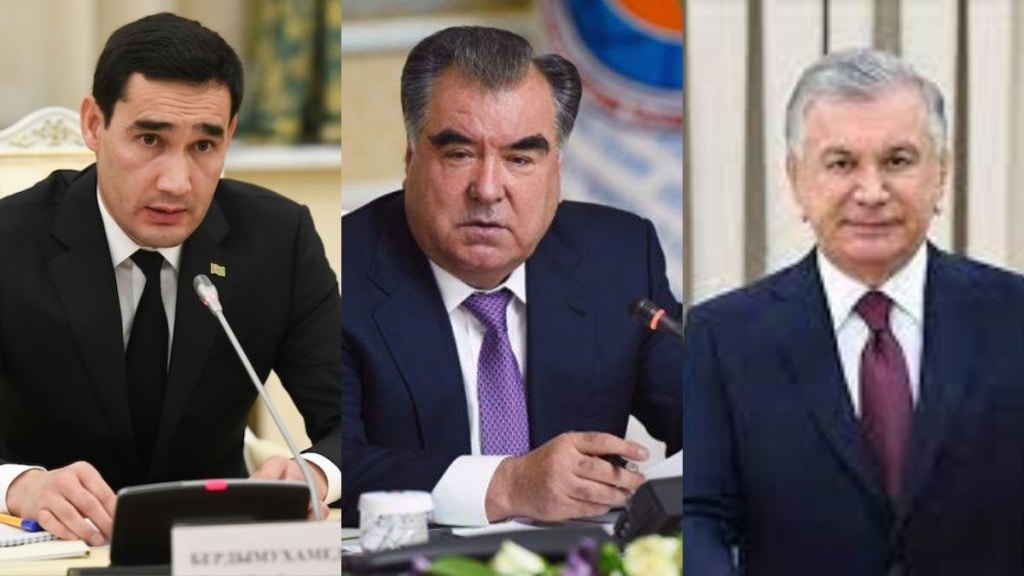By Dr Pravesh Kumar Gupta
On August 4, 2023, the leaders of three neighbouring Central Asian countries of Afghanistan met in Ashgabat, Turkmenistan. This was the first trilateral summit meeting between the Turkmen President, Serdar Berdimuhamedov, Emomali Rahmon of Tajikistan, and Uzbek President Shavkat Mirziyoyev. A joint statement expressing support for a strong political will and the capacity to achieve their objectives was released after the summit. The framework for cooperation is divided into three main areas: energy (oil, gas, and power), transportation, which covers transit and logistics, and water resources and related challenges.
There is already an existing arrangement for energy sharing between these countries. Since April 2018, Uzbekistan has been buying Tajik electricity based on demand. It also receives electricity from Turkmenistan. However, in the light of the recent energy crisis, there is a need to increase cooperation in this sector. The leaders of the energy departments of the three nations will meet in the second half of this year, as agreed upon at this meeting, to further strengthen cooperation in this field. It will serve as a supporting mechanism within this trilateral framework. Trade and economic development were prominently discussed in the joint declaration. These components have been highlighted because the industry strongly depends on stable and affordable energy supply as well as efficient and cost-effective logistics. Regional procurement was discussed at the summit, and it was emphasised that no product that could be acquired locally should be imported.
Enhancing the efficiency of transport corridors was another focus of the trilateral summit. As landlocked countries, Turkmenistan, Tajikistan, and Uzbekistan have attempted to diversify their external trade by gaining access to external markets via transiting a bordering country. Ashgabat’s geostrategic location is crucial in this regard. It shares a border with Iran as well as the Caspian Sea. Uzbekistan and Tajikistan may benefit from increased transportation and logistics cooperation with Turkmenistan. However, even if there has already been a lot of work done to promote corridors, it is still vital to put in place the hard and soft infrastructure required for their success. As a result of this meeting, existing transport projects are anticipated to receive a boost.
The joint statement focuses substantially on the management and mindful usage of the water of the Amudarya Basin. The Taliban’s recent erratic behaviour regarding using Amu Darya water has underscored the requirement to flag this issue. It is widely known that the changes in the course of this river basin’s water distribution will be detrimental to the environment as well as to the countries sharing water from this river. According to the joint statement, “effective water resource management, protection, and rational use” are required.
Significance of this Trilateral Summit
Notably, since the Taliban seized control in August 2021, the three nations have dealt with them differently. They maintained economic ties despite their refusal to recognise the Taliban regime. Tajikistan remained largely unfriendly, albeit continuing to supply Kabul with electricity. Turkmenistan also kept commercial ties with the Taliban. On the other hand, Uzbekistan took a proactive position by urging the international community to provide humanitarian assistance to Afghanistan, include Afghanistan in economic development projects, and unfreeze Afghan assets worldwide. However, the Taliban’s attitude remains unchanged. They are not upholding their commitments to the international community and are generating issues for their neighbours by creating unnecessary water issues.
Related to sharing water from the Helmand River, the Taliban recently engaged in a violent conflict with Iran. They have also begun construction on a gigantic canal draining a large volume of water from the Amudarya River. This will have consequences for Uzbekistan and Turkmenistan’s water supply. The Qosh Tepa Canal, named after the Qosh Tepa district of Jawzjan province, will be 285 kilometres long and 100 metres broad. This will help to irrigate 55000 hectares (1.35 million acres, or 5500 square kilometres) of land in northern Afghanistan. Still, it will harm agriculture and irrigation in the neighboring Uzbekistan and Turkmenistan. Given the gravity of the situation, one of the trilateral summit’s focus points was water-related issues.
It is reasonable to believe that a coordinated strategy of Afghanistan’s Central Asian neighbours will be more feasible than one-sided responses to the Taliban’s unpredictable actions. Furthermore, regional challenges necessitate regional responses. Border disputes are the most serious obstacles that have long hampered Central Asian regional cooperation. This issue has already been settled, except for a dispute between Kyrgyzstan and Tajikistan. Central Asia is currently experiencing a favourable regional environment, which resulted in some positive outcomes, such as increased regional trade and investment, among other things. Furthering regional cooperation in Central Asia, this trilateral framework will enable dialogue and the management of more regional concerns.
The result of this trilateral meeting is predictable, but the framework itself is very symbolic. The summit’s key themes (energy, transportation, and water difficulties) highlight the region’s complex mosaic of challenges that interconnect security, economics, and geopolitical elements and have larger ramifications. If the promises laid out in the joint declaration are applied carefully, it will add an alternative dimension to regional geopolitics.
Author is Associate Fellow (Central Asia), Vivekananda International Foundation, New Delhi.
Disclaimer: Views expressed are personal and do not reflect the official position or policy of Financial Express Online. Reproducing this content without permission is prohibited.

